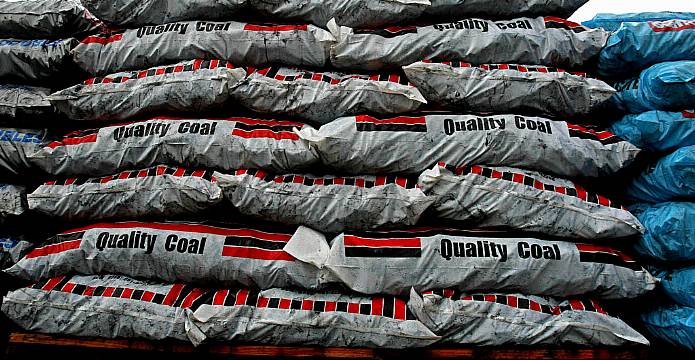Politicians on Tuesday heard a direct appeal for “leadership” on climate change, as they began a four-day process scrutinising the landmark carbon budgets plan published last year.
The academic and researchers who drafted those carbon budgets appeared before the Oireachtas Environment and Climate Action on Tuesday, with a warnings of the scale of the changes needed in the years to come.
Ireland is aiming to reduce greenhouse gas emissions by 51 per cent by 2030.
The carbon budgets are designed to determine the level of greenhouse gases that may be emitted by various sectors in Ireland over a five-year period.
Marie Donnelly, Chair of the independent Climate Change Advisory Council, made a direct appeal to the TDs and senators for leadership on the issue.
“The next step, of course, is, I hope, finalisation of the carbon budget but equally, the policies necessary in order to travel this road of transition, and to achieve its objectives,” she told committee members.
“If the hearts and minds of the population of the country are not fully engrossed in this exercise in a way that they feel it’s part of their future, as well as not just a political or a policy objective, but indeed what it is they want for themselves, their families, their children, and indeed their future – we won’t be able to do it.”
“We need leadership. And that for me is the link between science, policy and political parties.
“It is our politicians who are our leaders, and who will set the pace and set the direction of travel and set the ambition that we will achieve.”
This was echoed during the meeting by committee chair Brian Leddin.
The Green Party TD told his colleagues: “I don’t think that we can have climate mitigation unless we have very difficult discussions and make very hard decisions and indeed, very unpopular decisions.”
He said that a “very significant gap” remains between the work of the Climate Change Advisory Council and the pressure that needs to be on politicians.
During the three-hour session, politicians quizzed – and occasionally criticised – the drafters of the carbon budget plan.
Focus turned in particular to the targets for agriculture, transport and land use.
At one stage, Fianna Faill TD Christopher O’Sullivan asked the climate experts to answer the criticism that the first carbon budget – which will require emissions to reduce by 4.8% on average each year between 2021 and 2025 – was a “cop out”.
Professor Brian O Gallachoir, from University College Cork, rejected that criticism.
“If we set a carbon budget in the first five years that isn’t achievable, that can be a very damaging process for the whole trajectory. What we’re aiming for is to get net zero by 2050.”
He said that the overall plan is among the most ambitious in the world.
“I’m certainly very comfortable that what we’ve arrived at is the optimum,” he told politicians.
During a committee appearance in which the method and modelling contained in the carbon budgets was both probed and praised, the academics stressed that while they not prescribing specific policies there were certain inescapable facts facing Ireland if it was to reach the climate targets.
Dr Hannah Daly, also from University College Cork, said that included reducing the country’s dependency on fossil fuels.
She spoke about how the growth of electric car sales was less than the growth in SUV sales last year.
“I think that the focus needs to move away from meeting certain technology targets towards a relentless, immediate focus on reducing fossil fuel consumption.”
“And because it permeates all sorts of aspects of society, there’s no single solution,” she said.
Throughout the meeting, politicians were urged to begin preparations for the necessary changes to the economy and the jobs market.
The extent of the challenge was stressed.
Dr David Styles, from the University of Limerick, said that the target for carbon emissions in the land use sector may end up being “impossible” to reach.
Discussing the committee’s modelling, he said: “When we think of activity change, for example planting areas with forests, it’s not just the 2030 targets but 2050 and beyond.”
Prof O Gallachoir told the committee “rapid and sustained economic, social and technological transformation across all sectors of the economy” will be needed to meet Irish climate change targets.
He encouraged politicians present to “recommend that these carbon budgets be adopted, and further to ensure that the necessary urgency is directed at developing and implementing the policy supports and regulations to enable Ireland to remain within these carbon budgets”.







